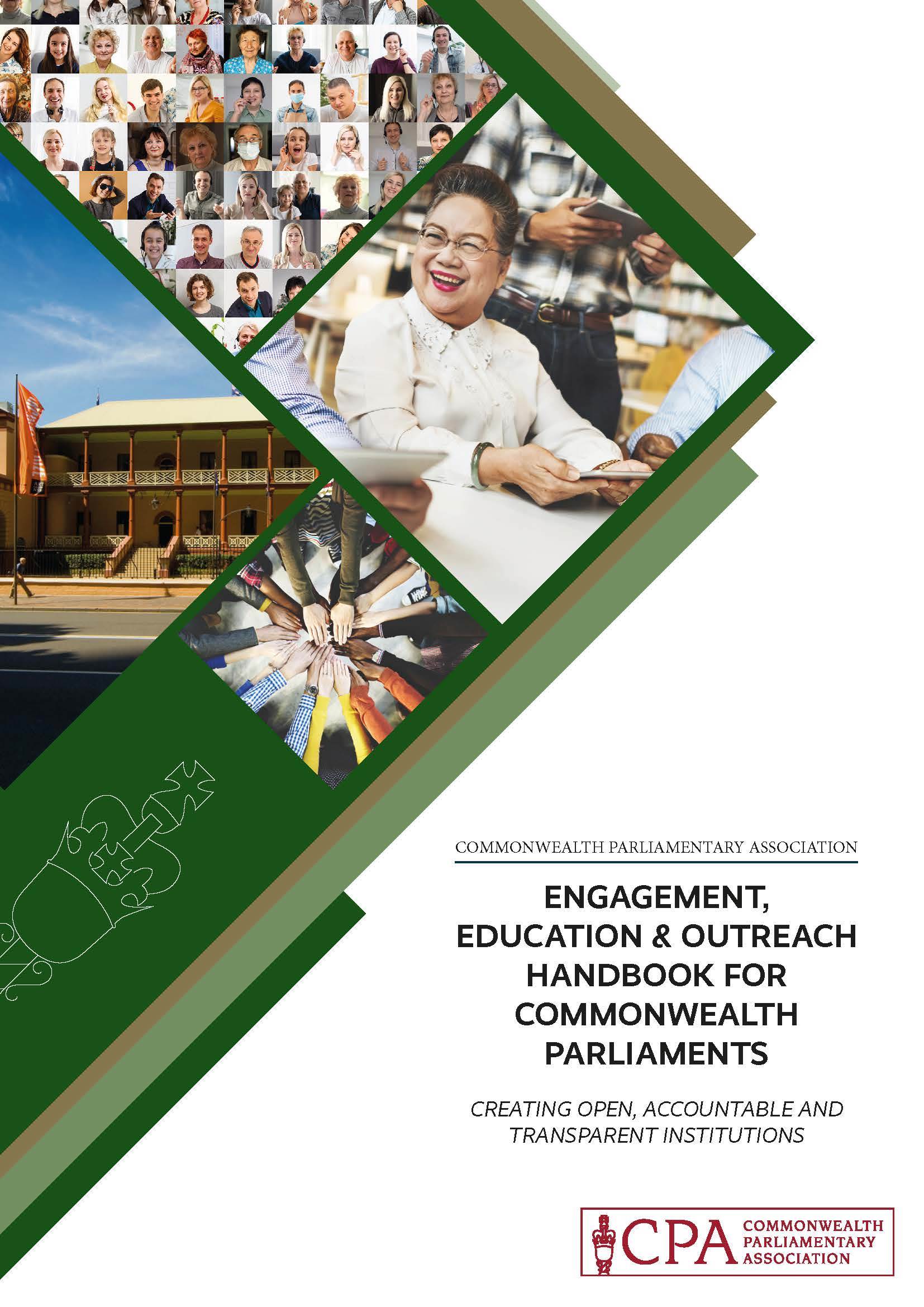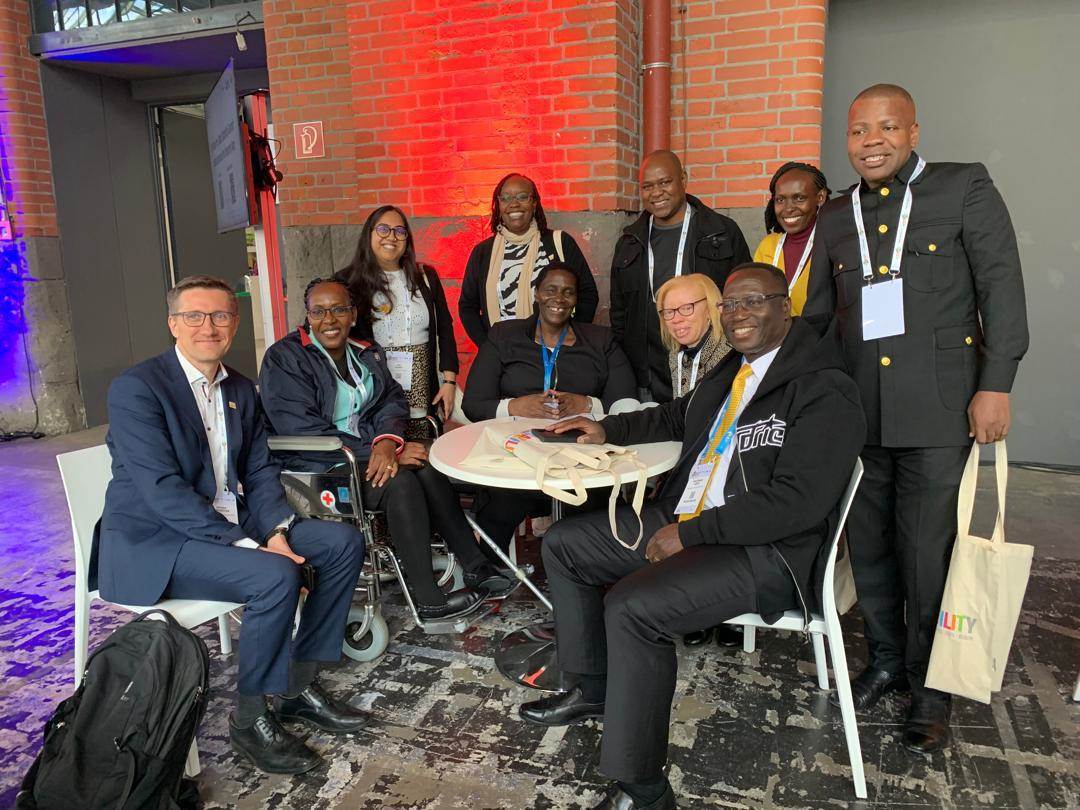The CPA's Engagement, Education and Outreach Handbook has been developed for Parliaments and is designed to be a practical resource to strengthen their public engagement and outreach focus. The Handbook has been developed with the support and cooperation of national and subnational Legislatures across the Commonwealth. You can also view the handbook on our ISSUU platform click here >

The Value of Bilingual Parliaments in Multilingual Jurisdictions: A Commonwealth Perspective
This blog takes a closer look at why bilingual or multilingual Parliaments are far more than just bureaucratic necessities - they are living embodiments of inclusion, fairness and unity.
This blog article was written by James Pinnell, Deputy Head of Programmes at the CPA. Views and opinions expressed in this article are his own.
Article posted on 21/02/2025.
- The Commonwealth, a family of 56 countries bound by shared history and values, is a vibrant mosaic of languages and cultures. Across this rich diversity, Parliaments stand as vital pillars of democracy, working to bring people together and ensure that every voice is heard.
- In countries with multiple official languages, bilingual or multilingual Parliaments are far more than just bureaucratic necessities - they are living embodiments of inclusion, fairness and unity.
- As the global community marks International Mother Language Day on 21 February, this blog takes a closer look at why these Parliaments matter, sharing inspiring examples from across the Commonwealth and celebrating the profound ways multilingualism strengthens our democracies and communities.
Linguistic Diversity: A Commonwealth Hallmark
While the English language is often referred to as a ‘binding thread’ across the Commonwealth, the reality is that this family of nations is home to an extraordinary variety of languages and dialects.
From South Africa, which celebrates 11 official languages including isiZulu, Afrikaans and English, to Canada, where English and French share equal footing under the Official Languages Act of 1969, linguistic diversity is a defining feature. In these multilingual contexts, Parliaments have a vital responsibility to embrace and navigate this diversity, ensuring that every citizen can meaningfully engage with their democracy.
Bilingual and multilingual Parliaments are essential for safeguarding the rights of linguistic minorities and promoting equal access to governance. Imagine a citizen hearing their preferred language in parliamentary proceedings - it sends a powerful message that their identity and voice truly matter. When people can follow debates, understand legislation and access public information in a language they deeply connect with, it builds trust in democratic institutions. This inclusivity doesn’t just inform citizens; it empowers them, fostering a sense of belonging and encouraging greater engagement with the democratic process. Ultimately, such efforts help knit together the fabric of diverse societies, creating spaces where everyone feels heard and valued.
Best Practices in Bilingual and Multilingual Parliaments
Several Commonwealth Legislatures have adopted innovative strategies to ensure linguistic inclusivity in their parliamentary practices.
Below, we highlight four case studies:
Kenya: Translating Parliamentary Standing Orders into Swahili
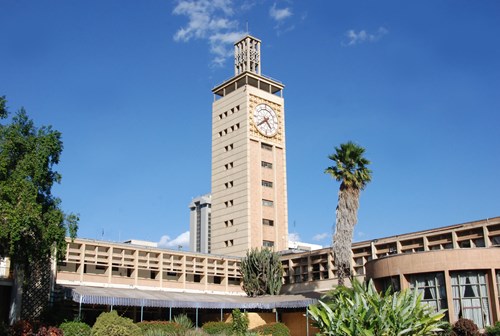
The Parliament of Kenya has taken a significant step towards linguistic inclusivity by translating its Standing Orders into Kiwahili, one of the country’s official languages and widely spoken by its citizens. This landmark initiative was undertaken to not only align with the assessment undertaken by the Parliament using the CPA Recommended Benchmarks for Democratic Legislatures, but also adheres to Article 118 of the Constitution of Kenya, which requires Parliament to facilitate public participation and involvement in its legislative business.
This initiative was also supported by experts from the University of Nairobi, whose faculty members contributed to developing the Kiswahili and bilingual versions of the National Assembly’s Standing Orders. The translation process involved a dedicated task force comprising Kiswahili experts, who worked meticulously to ensure accuracy and cultural relevance.
The translated Standing Orders are available on the official Parliament of Kenya website, providing citizens with direct access to parliamentary procedures in Kiswahili. This effort underscores the Parliament's commitment to fostering greater public engagement by making legislative processes more comprehensible to Kiswahili-speaking citizens.
Canada: Institutionalising Bilingualism

Canada’s Parliament is a global leader in promoting bilingualism. The Canadian Official Languages Act mandates that all federal institutions, including Parliament, provide services in both English and French. Simultaneous interpretation is available during parliamentary debates and official documents, including Hansard transcripts and Committee reports, are published in both languages.
The Canadian Parliament also demonstrates a proactive approach to supporting bilingualism among its Members of Parliament. Language training programmes are available to Parliamentarians, enabling them to communicate effectively in both official languages. These programmes are also extended to parliamentary staff, ensuring that the commitment to bilingualism is embedded across all levels of governance. This inclusivity not only helps Parliamentarians and staff communicate seamlessly but also reflects Canada’s dedication to fostering a culture where linguistic duality is respected and celebrated.
South Africa: Multilingualism in Action
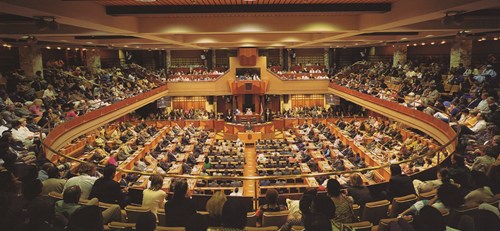
South Africa’s Parliament exemplifies how multilingualism can be embedded in legislative processes. Recognising 11 official languages, the Parliament offers interpretation services to accommodate diverse linguistic groups. Members of Parliament are encouraged to speak in their preferred language during debates, fostering an inclusive environment.
The ‘Taking Parliament to the People’ (TPTTP) initiative exemplifies the nation's commitment to facilitating direct interaction between citizens and their representatives. This programme travels to various regions, often focusing on more remote areas to ensure broad public participation. A key component of TPTTP is the provision of language services to accommodate the country's linguistic diversity. Interpreting services are integral to the programme, enabling effective communication during public engagements.
For instance, during the Climate Change Bill public hearings, Parliament employed various channels, including in-person hearings and community engagement activities, to facilitate public input, underscoring the public’s active interest and participation. These efforts ensure that citizens can engage in the legislative process in languages they understand, fostering a more inclusive and participatory democracy.
Wales: Preserving and Promoting Minority Languages
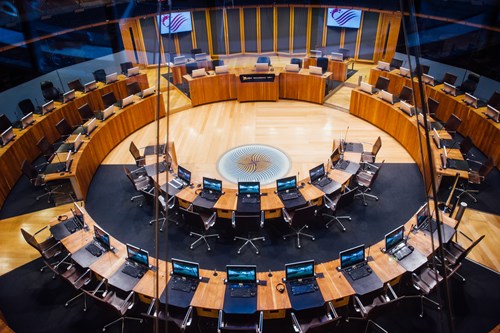
The Senedd (Welsh Parliament) exemplifies a robust commitment to bilingualism in governance. Welsh and English have equal status in the Senedd, and interpretation services are provided during debates. Under the Senedd’s current Official Languages Scheme, all documents, including legislation, are published bilingually, ensuring accessibility for Welsh speakers.
The Senedd’s commitment to the Welsh language extends beyond its walls and is embedded in its external communications. This includes requiring, for example, that the Senedd must respond to any contact via social media in the official language that was originally used, and that individual members of Senedd Commission staff should record bilingual messages on their telephone answering machines. This approach demonstrates how Legislatures can play a pivotal role in revitalizing languages that might once have been the primary language of a jurisdiction but have come to be spoken by a minority of the population over time.
Benefits of Bilingual and Multilingual Parliaments
Bilingual and multilingual Parliaments contribute to more than just effective governance. They also yield significant social, cultural and economic benefits:
- Enhanced Democratic Participation: Linguistic inclusivity ensures that all citizens, regardless of their preferred language, can engage with legislative processes. This inclusivity reduces barriers to participation and empowers marginalized communities to voice their concerns. For example, Canada’s bilingual parliamentary practices enable French-speaking communities in Québec and New Brunswick to participate fully in national and provincial governance.
- Strengthening Social Cohesion: Recognising and respecting linguistic diversity fosters a sense of belonging among citizens. When Parliaments operate bilingually, they signal a commitment to unity in diversity. South Africa’s multilingual approach, for instance, has been instrumental in promoting reconciliation and national unity in a post-apartheid era.
- Preserving Cultural Heritage: Bilingual and multilingual Parliaments play a crucial role in preserving and promoting cultural heritage. By prioritising the use of minority and indigenous languages, these institutions contribute to the revitalisation of linguistic traditions. The Senedd’s efforts to promote the Welsh language exemplify how Parliaments can serve as custodians of cultural heritage.
Challenges and Opportunities
While the benefits of bilingual and multilingual Parliaments are clear, implementing such systems is not without challenges. Among the Commonwealth Parliamentary Association's membership of almost 180 Legislatures, many Parliaments operate under significant resource constraints - be it tight financial budgets, insufficient personnel or a lack of technical infrastructure.
These realities can make it difficult to provide comprehensive interpretation and translation services, particularly in contexts where multiple languages require simultaneous support. In addition, logistical complexities - such as hiring and training skilled interpreters or producing bilingual documentation - can strain already overstretched resources. Resistance to change can also arise, with some questioning the necessity or feasibility of multilingual practices. However, these challenges also present opportunities for innovation.
Technology offers a promising avenue for overcoming linguistic barriers, bringing innovation and efficiency into the heart of multilingual governance. Advances in real-time translation tools, Artificial Intelligence and digital platforms have the potential to transform how Parliaments operate. For example, AI-powered translation tools can significantly reduce costs while maintaining high standards of linguistic accuracy - a vital advantage for Parliaments facing resource constraints.
Moreover, these technologies come with an added opportunity: when AI models are trained in a multilingual manner, they avoid the biases often found in systems built predominantly on English or other dominant languages.
This approach not only broadens the scope of linguistic inclusivity but also leads to more equitable technological advancements. For instance, real-time translation systems that effectively process a diverse range of languages, including indigenous and minority ones, ensure that no community is left behind.
Some Parliaments are already exploring tools like AI-enhanced captioning for debates or digital platforms that provide instantaneous document translation, paving the way for wider accessibility and engagement. These innovations underscore the importance of thoughtful investment in technology that mirrors the linguistic and cultural richness of the societies it serves.
Capacity-building initiatives are equally critical. For instance, the New Zealand Parliament, known for its record of Māori representation, has implemented specific training programmes to promote the use of te reo Māori (the Māori language) among Parliamentarians and staff. These initiatives not only ensure that linguistic inclusivity is a practical reality but also honour and celebrate New Zealand's unique cultural heritage.
Moreover, fostering partnerships with linguistic and cultural organisations can help Parliaments develop best practices tailored to their unique contexts, ensuring that the richness of their societies is reflected in their governance. Notably in New Zealand, the Parliamentary Counsel Office/Te Tari Tohutohu Pāremata works with the Māori Language Commission/Te Taura Whiri i te Reo Māori), which leads in Māori language planning.
Conclusion
Bilingual and multilingual Parliaments are vital for fostering inclusive, equitable and effective governance in linguistically diverse jurisdictions. By embracing linguistic diversity, Parliaments not only fulfill their constitutional obligations but also strengthen democratic institutions, promote social cohesion and preserve cultural heritage.
As the Commonwealth continues to champion values of democracy, human rights and cultural diversity, its member states have an opportunity to lead by example. By investing in bilingual and multilingual parliamentary practices, they can demonstrate that linguistic inclusivity is not just a matter of policy but a fundamental pillar of participatory democracy. Through collaboration, innovation and a shared commitment to equity, Commonwealth Parliaments can ensure that every voice—regardless of language—is heard and valued.
International Mother Language Day has been recognised by UNESCO since 1999 and the UN General Assembly since 2002, and it takes place on 21 February each year.
The idea was the initiative of Bangladesh and day promotes “the preservation and protection of all languages used by peoples of the world." Today, there is growing awareness that languages play a vital role in development, ensuring cultural diversity and intercultural dialogue.
To read more of the CPA's blog articles please click here.

